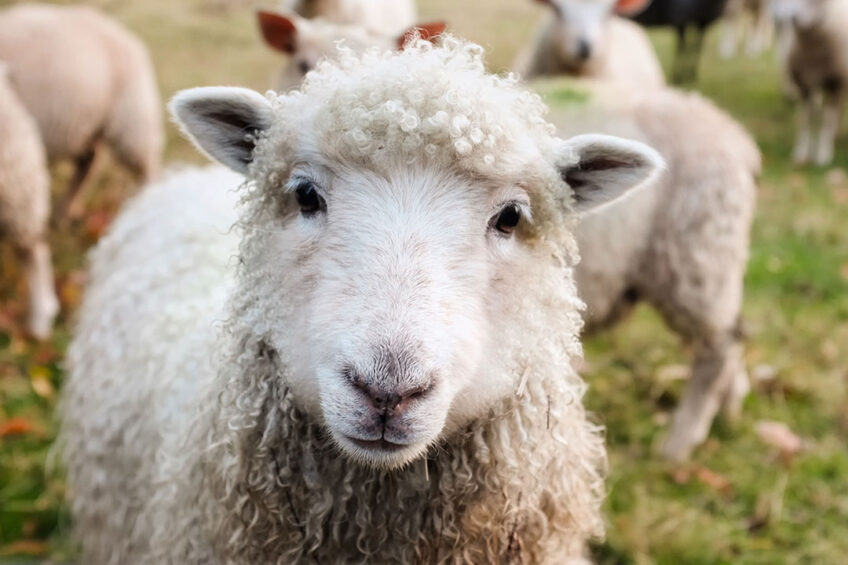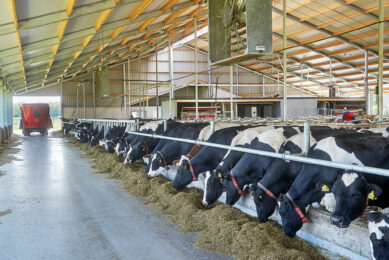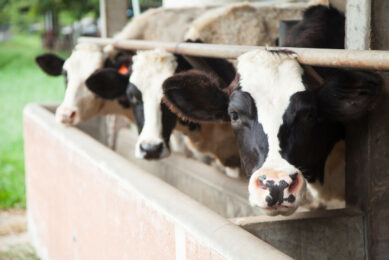Impact of diet and genetics on feed efficiency and meat production in sheep

Feed costs, which can account for more than 60% of the total cost in sheep production systems, and carcass yields, affect the profitability and sustainability of sheep farming, meaning it is crucial to select animals with a higher feed efficiency (FE) and high-quality meat production.
Scientists looked on the impact of dietary and genetic factors on production traits, including feed efficiency, carcass quality and meat quality. Diets currently promote optimal sheep growth and development and provide sufficient protein, which can lead to better quality meat. But establishing an optimised production system requires careful consideration and balance of dietary parameters.
This includes ensuring adequate protein intake and feeding diets with higher intestinal absorption rates to enhance nutrient absorption in the gut.
Identifying genes for sheep selection
The study, led by scientists at the Institute for Global Food Security at the School of Biological Sciences, Queen’s University, Belfast, identifies specific genes such as Callipyge, Calpastatin and Myostatin, and the presence of causal mutations in these genes, as factors influencing animal growth rates, feed efficiency and meat fatty acid profiles. Additionally, variants of other reported genes, including PIGY, UCP1, MEF2B, TNNC2, FABP4, SCD, FASN, ADCY8, ME1, CA1, GLIS1, IL1RAPL1, SOX5, SOX6 and IGF1, show potential as markers for sheep selection.
Heritable traits
The team carried out a meta-analysis of reported heritability and found that residual feed intake (0.27 ± 0.07), hot carcass weight (0.26 ± 0.05), dressing percentage (0.23 ± 0.05), and intramuscular fat content (0.45 ± 0.04) are moderately to highly heritable traits. This suggests that these traits are less influenced by environmental factors and could be improved through genetic selection. Additionally, positive genetic correlations exist between body weight and hot carcass weight (0.91 ± 0.06), dressing percentage (0.35 ± 0.15), and shear force (0.27 ± 0.24), indicating that selecting for higher body weight could lead to favourable changes in carcass quality, and meat quality.
The scientists said it was worth noting that the optimal quantity of each diet needed to be carefully considered
Feeding regime for improved feed efficiency
Incorporating specific diets into the feeding regime of sheep has shown a reduction dry matter intake and ADG while increasing the final body weight, thereby resulting in enhanced FE. Several diets including vitamin A, finger millet and corn straw, licuri cake, dehydrated lucerne and soybean oil, spineless cactus, macadamia oil and fennel seed powder were showed to have reported improvements in FE.
The scientists said it was worth noting that the optimal quantity of each diet needed to be carefully considered as moderate levels of some diets were founded to enhance FE, whereas high levels of the same diets decreased FE. In addition to improving FE, a range of diets incorporating dietary crude protein, chromium-yeast, spineless cactus and protein-enriched fermented feed supplements werfe shown to improve meat and carcass quality and result in higher HCW, increased carcass fatness and heavier slaughter weights.
Diets to enhance meat quality
Diets containing licuri cake, linseed, rosemary distillation residues and soybean have been found to enhance meat quality, leading to increased colour index, flavour, tenderness and unsaturated fatty acid levels, highlighting the key role which the incorporation of specified dietary constituents at optimum quantities into feed can play in boosting FE while maintaining and increasing carcass and meat quality.
The full study, which was supported by the UKRI Biotechnology and Biological Sciences Research Council, has been published in the journal Animal Genetics – Insights into the influence of diet and genetics on feed efficiency and meat production in sheep – Chacko Kaitholil – Animal Genetics – Wiley Online Library











